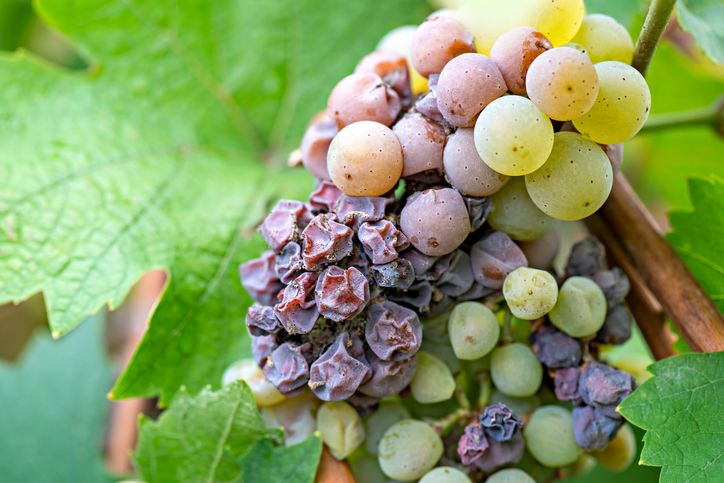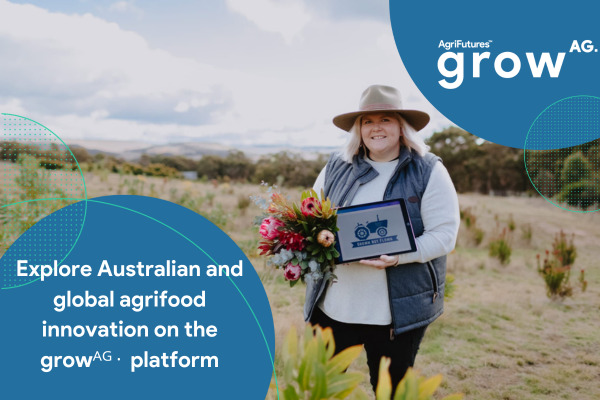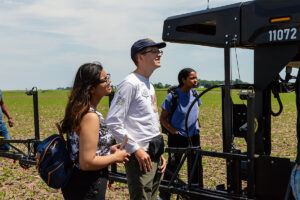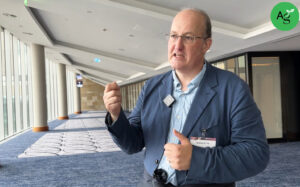US-based crop protection products company AgBiome has raised $116 million in a Series D funding round co-led by Blue Horizon Ventures and Novalis LifeSciences.
Additional participants included new and incumbent investors such as Bayer, Fidelity, UTIMCO, The Mosaic Company, Polaris Partners, ARCH Venture Partners, and Pontifax AgTech, among others.
AgBiome said in a statement that it will use the new funds to expand its product portfolio, scale its scientific and commercial teams, and build more partnerships with global ag companies. The Raleigh, North Carolina-based startup already has agreements in place with South Korea’s Farm Hannong, Brazil’s Tropical Melhoramento & Genética, and a Mexican subsidiary of Japan’s Sumitomo Corp, in addition to research collaborations with BASF, the Bill & Melinda Gates Foundation, and the Max Planck Institute for Plant Breeding Research, among others.
Founded in 2012, AgBiome has built a business on providing farmers with biological-based crop protection products — that is, products derived from the natural world rather than from synthetic chemicals.
The company’s tech platform, Genesis, captures and screens microbes found in the natural world to identify apt candidates for pest control and crop protection. The company’s first product, Howler, is a fungicide that works on soil-borne and foliar diseases such as Botrytis, Phytophthora, and various mildews.
AgBiome will launch a second product, Theia Fungicide, in early 2022 and has submitted a third, Esendo Fungicide, for registration with the US Environmental Protection Agency. The company plans to expand its product roster to include insecticides and herbicides, and is aiming to have 11 products on the market by 2025.
Biologics with ‘none of the trade-offs’
According to AgBiome, the market for biological crop protection products will grow 14-fold by 2030.
At the same time, the environmental hazards of their chemical crop counterparts are well documented; and nowadays, consumers and lawmakers alike are demanding change.
“The challenge is obviously, ‘What’s the alternative?’” Kieran Mahanty, director at Blue Horizon Ventures, tells AFN. “If you try and do without pesticides, your yield drops and you don’t produce enough food. The history of biological crop protection has been that you’re always asking the grower to make a trade-off. You’re asking them to use a product which is slightly less effective than a synthetic chemical.”
Mahanty says one of the major reasons Blue Horizon chose to invest in AgBiome was the latter’s ability to deliver a biological-based product that can protect plants with the same efficacy as a synthetic chemical, but with “none of the negative trade-offs.”
Have you heard our chief editor Louisa Burwood-Taylor interview AgBiome on our podcast Future Food? Check it out here.
‘Not a one-hit wonder’
According to Mahanty, another stand-out characteristic of AgBiome is the success of its biological products in a multitude of scenarios.
Howler, for example, works across more than 300 crop-disease combinations and a variety of crop types, including leafy vegetables, tubers, grapes, beans, fruiting vegetables, and even tobacco. In sub-Saharan Africa, the company is using its technology to combat the sweet potato weevil. And a quick scan through the company’s list of ongoing projects pulls up a variety of other potential uses for the platform, including nematicide.
“They’ve put a system in place they can [use] rigorously over and over again, so that it’s not a one-hit-wonder,” Mahanty says. “They can, for the long term, be developing products that deal with each new disease issue as we come across it.”
Reducing emissions with microbes
Mahanty also highlights the importance that microbe-focused technology could have for fighting climate change. “[There are] 50 to 70 percent less greenhouse gases through microbial-based pesticides versus synthetic ones,” he says.
“We know that soil health is an important determinant of the agricultural ecosystem’s ability to sequester carbon,” AgBiome co-founder and co-CEO Eric Ward tells AFN. “There’s a growing body of evidence that natural microbial solutions can increase soil microbial diversity, which is a key component of soil health. In addition, manufacturing natural microbial products has a reduced carbon footprint compared to synthetic chemical alternatives.”
Along those lines, AgBiome is working with research partners and environmental sustainability consultants to “quantify the positive impact microbial solutions have on reducing carbon emissions,” he adds.















Sponsored
Sponsored post: The innovator’s dilemma: why agbioscience innovation must focus on the farmer first